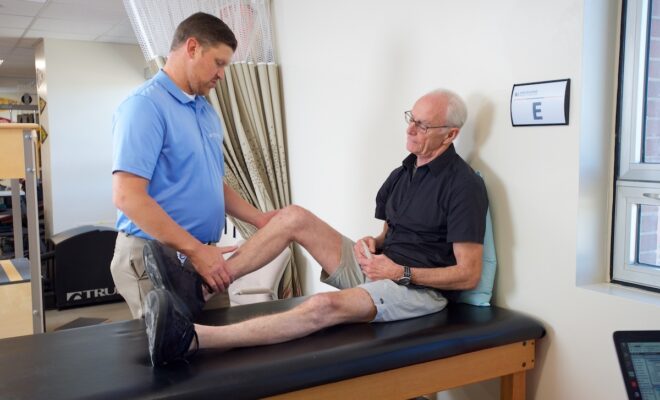Orthopedic Surgeons And Their Role In Treating Meniscal Tears

Meniscal tears can cause pain and limit movement. Orthopedic surgeons play a vital role in treating these injuries. With their expertise, they guide patients from diagnosis to recovery. Dr. Patrick S. McNulty, a renowned expert in the field, highlights the importance of precise surgical techniques. This ensures better outcomes and quicker healing. Understanding their role helps one appreciate the value of skilled orthopedic care.
What is a Meniscal Tear?
A meniscal tear is a common knee injury. The knee joint has two menisci, which are C-shaped pieces of cartilage. They provide cushioning and stability. Tears can occur from sudden twists or degeneration over time. Symptoms include pain, swelling, and difficulty straightening the knee.
The Role of Orthopedic Surgeons
Orthopedic surgeons specialize in the musculoskeletal system. They assess the extent of a meniscal tear and decide on the best course of treatment. Their training allows them to perform precise surgical interventions when necessary, ensuring optimal recovery.
Treatment Options
There are several treatment options available. These depend on the severity and location of the tear. Orthopedic surgeons typically follow a treatment plan that includes:
- Rest and physical therapy
- Medications to manage pain
- Surgical repair for severe tears
Non-Surgical Treatments
For minor meniscal tears, rest, ice, and physical therapy are often effective. Surgeons may recommend exercises to strengthen the muscles around the knee. This supports healing and helps prevent future injuries.
Surgical Treatments
In cases where the tear is severe, or symptoms persist, surgery may be necessary. Orthopedic surgeons use arthroscopy, a minimally invasive technique. Small incisions and specialized tools help repair or remove the damaged tissue.
Comparison of Treatment Options
| Non-Surgical Treatment | Surgical Treatment |
|---|---|
| Less invasive | Involves surgery |
| Longer recovery time | Quicker recovery |
| Effective for minor tears | Effective for severe tears |
Recovery and Rehabilitation
Recovery time varies based on the type of treatment. After surgery, patients often participate in rehabilitation programs. These programs help restore strength and flexibility. The goal is to return to daily activities and prevent future injuries.
The Importance of Follow-Up Care
Routine follow-up care is crucial. It ensures that the knee heals properly and identifies any complications early. Regular check-ups with an orthopedic surgeon are essential for long-term success.
Why Choose an Orthopedic Surgeon?
Orthopedic surgeons have specialized training in treating joint injuries. Their experience with surgical techniques ensures the best possible outcomes. Choosing a qualified surgeon can significantly improve recovery and quality of life.
Final Thoughts
Orthopedic surgeons play an essential role in treating meniscal tears. From diagnosis to recovery, their expertise ensures effective treatment and better outcomes. For more information on meniscal tears and treatments, visit the National Institute of Arthritis and Musculoskeletal and Skin Diseases or the American Academy of Orthopaedic Surgeons. Understanding the options available can help in making informed decisions about knee health.








